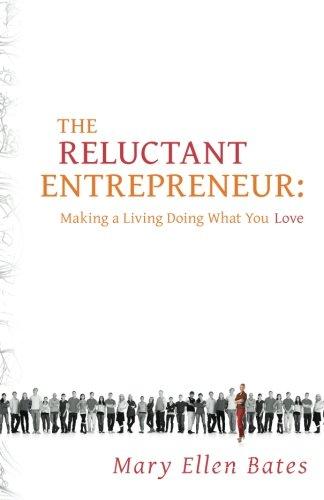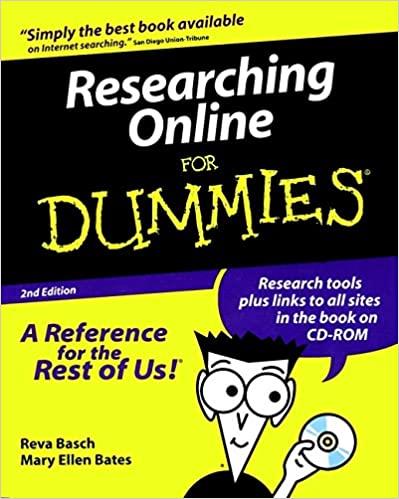Lucidea’s Lens: Knowledge Management Thought Leaders Part 25 – Mary Ellen Bates

Stan Garfield
Mary Ellen Bates is the founder and principal of Bates Information Services Inc. After 15 years managing corporate information centers and specialized libraries, she started her business in 1991 with the intent of providing high-end research and analysis services to strategic decision-makers.
She also writes, teaches and speaks frequently about issues in the information industry. She has written seven books on various aspects of the information industry, as well as a number of white papers and ebooks sponsored by information companies for lead generation.
Since 2006, she has offered coaching services for both new and long-time solopreneurs, after having served as an informal mentor for many fellow infopreneurs. May Ellen is a self-described Info-entrepreneur, enabler of better business decisions, and strategic coach for solopreneurs.
Mary Ellen believes in the value of community and the importance of giving back to the people and organizations that have supported her over the years. She twice served as the president of the Association of Independent Information Professionals, have been on the board of directors for the Special Libraries Association. Her awards include AIIP’s Sue Rugge Memorial Award for mentoring (twice) and the President’s Award, the John Jacob Astor Award in Library and Information Science, and the Special Libraries Association’s Professional Award. She is a Fellow of SLA.
Mary Ellen earned a Master’s in Library and Information Science from the University of California at Berkeley and a Bachelor of Arts in Philosophy from the University of California at Santa Barbara. She lives in the foothills of the Rocky Mountains near Boulder, Colorado.
Experience
- Principal, Bates Information Services, 1991 – Present
- Columnist, Online Searcher Magazine, 2001 – Present
Quote: “I have spent much of my professional life working in the information industry – I started out in the late 1970s, designing a library database using key-punch cards and using 300-baud modems and thermal paper to search the Dialog databases. By the time I started my business in 1991, I had over a decade of experience in libraries and information centers and decided that I needed to strike out on my own. I have watched the quantum shift that the web has brought to the information industry, and I have been active in helping the information profession to thrive in radically changing environments.”
Profiles
Books
The Reluctant Entrepreneur: Making a Living Doing What You Love

Researching Online for Dummies 2nd edition with Reva Basch

Super Searchers Cover the World: The Online Secrets of International Business Researchers
Mining for Gold on The Internet: How to Find Investment and Financial Information on the Internet
Super Searchers Do Business: The Online Secrets of Top Business Researchers
The Online Deskbook: Online Magazine’s Essential Desk Reference for Online and Internet Searchers
Presentations and Videos
Conferences
AIIP (Association of Independent Information Professionals)
SLA (Special Libraries Association)
Other Content
- The Reluctant Entrepreneur (new)
- The Reluctant Entrepreneur (old)
- Online Searcher
- AIIP Blog
- LinkedIn Posts
- White Papers & eBooks
- Articles
- Bates InfoTips
Amaze Them with Library Science
We information professionals have the ability to see the possibilities in information. Just as a sculptor can look at a stone and see the sculpture’s final form, so we info pros can look at a dataset, a news platform, or the results of a query and see what we could do next with the information. Our users, conversely, are struggling to find reliable sources, stay current in their field while not getting overwhelmed with repetitive or irrelevant information, and efficiently distill and understand the meaning behind the information they have.
How might we look at our roles with an eye to rediscovering and resurfacing our library science superpowers?
- Information acquisition: Info pros know how to evaluate both the reliability and the cost-effectiveness of information sources, whereas our users are often less skilled at evaluating an information resource and determining its suitability. We can teach our users what to look for in an information source and how to compare free vs. fee-based sources, and we can reintroduce them to the library’s licensed content.
- Information retrieval: While everyone believes they are above-average searchers, info pros really can get better results from Google than most folks. One way of getting around the assumption of expertise is to offer short video tutorials that show users new approaches for finding in-depth information in their field of interest, or customized search portals to help make the library’s power search tools no more intimidating than a Google search box.
- Information management: Most users assume that, once a project is completed, they no longer need to retain that specialized dataset and its APIs or keep archived copies of web content. We can help build information management best practices into research projects by raising issues of retention and backup at the beginning of the project and offering guidance on the importance of information retention and interaccessibility.
- Information tools: While users may know us as information experts, they may not realize that one of our superpowers is the ability to help users learn about new information technology and tools. We can create virtual labs and LibGuides that point users to the best resources in an emerging field, such as AI or blockchain.
As we look at how information professionals can best meet our clients’ information needs today, it helps to remember that they may be struggling to find and manage their information sources, without realizing that all they need to do is call on their local librarian superhero.
Managing Institutional Knowledge and Insight
The Role of (Human) Knowledge Models
Most organizations with robust Text and data mining (TDM) initiatives rely on internally developed ontologies that organize and structure knowledge in the subject domains most important to their research. In addition, consortia of subject experts, industry groups and associations, and publishers create ontologies to represent the relationships between concepts and entities in a particular field.
These knowledge models help address the need for researchers to conduct as comprehensive a scan as possible of the literature while still remaining focused on a particular field. In the past, researchers were able to conduct online or manual scans of the published literature with a reasonable assurance of comprehensive results. As sub-specializations within fields have proliferated and the number of STM publications continues to grow, researchers have greater concerns that they will miss a relevant study appearing in a niche publication. Using a knowledge model that reflects all the aspects of a domain of knowledge, a TDM algorithm can scan a much broader range of content and identify relevant content that appears in sources outside a researcher’s area of focus. As scientists and researchers tackle complex and interconnected societal problems—COVID-19, climate change, clean energy—the need to find relevant insights in a wide range of domains is critical.
Information managers and KM professionals have found creative ways to use TDM to ensure the right coverage of a fragmented field of knowledge. One director of information services for a pharmaceutical company uses TDM to monitor a wide range of content, including peer-reviewed articles, company news, conference abstracts, drug pipeline data, and other resources, for an internal newsletter. The news is distributed through an internal social network and a conversation often develops among the researchers as to why a particular item was included. These debates are used to educate the TDM algorithm to better reflect the focus of the scientists; the director commented that this iterative process has greatly enhanced both the TDM system and knowledge sharing within the organization.

Stan Garfield
Please enjoy Stan’s blog posts offering advice and insights drawn from many years as a KM practitioner. You may also want to download a free copy of his book, Lucidea’s Lens: Special Librarians & Information Specialists; The Five Cs of KM from Lucidea Press, and its precursor, Proven Practices for Implementing a Knowledge Management Program. And learn about Lucidea’s Presto, SydneyEnterprise, and GeniePlus software with unrivaled KM capabilities that enable successful knowledge curation and sharing.
Never miss another post. Subscribe today!
Similar Posts
Lucidea’s Lens: Knowledge Management Thought Leaders Part 79 – David Garvin
KM expert David Garvin was a proponent of organizational learning to counter unpredictability in market forces and technology advances.
Lucidea’s Lens: Knowledge Management Thought Leaders Part 78 – Carl Frappaolo
KM expert Carl Frappaolo was the creator of Delphi’s Knowledge Management Methodology (KM2)
Lucidea’s Lens: Knowledge Management Thought Leaders Part 77 – Leif Edvinsson
Leif Edvinsson, Professor Emeritus at Lund University in Sweden, specializes in Intellectual Capital Management of Enterprises, Cities, and Nations
Lucidea’s Lens: Knowledge Management Thought Leaders Part 76 – Seth Earley
Seth Earley works in cognitive computing, knowledge engineering, data management systems, taxonomy, ontology, and metadata governance strategies.

Leave a Comment
Comments are reviewed and must adhere to our comments policy.
0 Comments